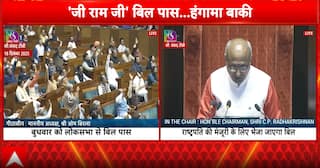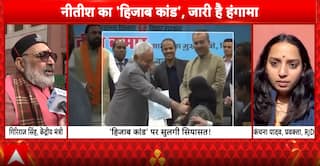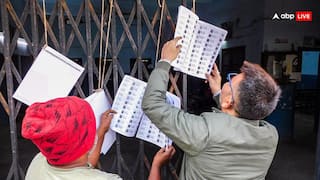Road To 2047: How India Plans To Tackle Clean And Green Energy Requirement Towards Net-Zero Target
India is focusing on research and development to drive innovation in the clean and green energy sector.

India has set an ambitious target to become a net-zero carbon emitter by 2050, as part of its commitment to tackle the global climate crisis. As the world's third largest emitter of greenhouse gases, India's actions will be critical in achieving the goals of the Paris Agreement. To achieve this target, India has identified the need to shift towards clean and green energy sources. At the upcoming G20 Summit in India, the country will outline its strategy to tackle the clean and green energy requirement to become a leader in the field.
One of the key aspects of India's strategy is the promotion of renewable energy sources, particularly solar and wind power. India has set a target of achieving 450 GW of renewable energy capacity by 2030, which includes 280 GW of solar and 140 GW of wind power. This is a significant increase from the current installed capacity of around 93 GW, and India is investing heavily in expanding its renewable energy infrastructure.
To support this growth, India has launched several initiatives, including the International Solar Alliance, which aims to promote the use of solar energy and reduce the cost of solar power generation. The government has also introduced a range of policies and incentives to encourage the adoption of renewable energy sources, such as feed-in tariffs, tax exemptions, and subsidies.
Another key area of focus for India is the electrification of its transportation system. India has set a target to have 30% of all vehicles on its roads running on electricity by 2030. This includes a focus on electric two-wheelers and three-wheelers, which are popular modes of transportation in the country.
To support the adoption of electric vehicles, India has introduced several incentives and policies, such as tax exemptions and subsidies for electric vehicle manufacturers and buyers. The government has also launched the Faster Adoption and Manufacturing of (Hybrid &) Electric Vehicles (FAME) scheme, which aims to promote the use of electric vehicles in the country.
India is also investing in the development of advanced battery technologies, such as solid-state batteries, to support the growth of its electric vehicle sector. The government has set up the National Mission on Transformative Mobility and Battery Storage, which aims to create a local manufacturing ecosystem for advanced batteries.
In addition to promoting renewable energy and electrification, India is also focusing on energy efficiency and conservation. The government has launched several initiatives to improve the energy efficiency of buildings, industries, and appliances. This includes the Energy Conservation Building Code, which sets standards for energy-efficient buildings, and the Perform, Achieve, and Trade scheme, which incentivizes energy-efficient practices in industries.
India is also investing in the development of smart grids, which can help improve the efficiency of the electricity distribution system. Smart grids use advanced technologies, such as sensors and automation, to monitor and control the flow of electricity. This can help reduce energy losses and improve the stability of the electricity grid.
Finally, India is focusing on research and development to drive innovation in the clean and green energy sector. The government has set up several research institutions, such as the National Institute of Solar Energy and the Indian Institute of Science, to support the development of new technologies and solutions. India is also collaborating with other countries, such as the United States, Japan, and France, on research and development initiatives in the clean energy sector.
India's strategy to tackle the clean and green energy requirement is comprehensive and ambitious. The country is focusing on promoting renewable energy sources, electrifying its transportation system, improving energy efficiency and conservation, developing smart grids, and driving innovation through research and development. These initiatives will not only help India achieve its net-zero carbon emissions target but also contribute to the global effort to tackle the climate crisis.
The author is a political analyst.
[Disclaimer: The opinions, beliefs, and views expressed by the various authors and forum participants on this website are personal and do not reflect the opinions, beliefs, and views of ABP News Network Pvt Ltd.]







































